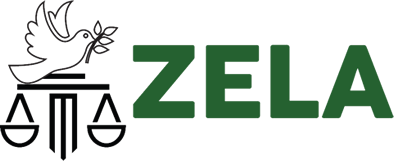
https://www.business-humanrights.org/en/blog/why-access-to-effective-rem...
https://zela.org/access-to-information-is-key-to-enhancing-reporting-on-...
Obert Bore, Responsible Business and Human Rights Lead, Zimbabwe Environmental Law Association (ZELA)
The right to effective remedy is a core component of international human rights law. Within the business and human rights context, the UN Guiding Principles on Business and Human Rights (UNGPs) recognise the need for victims of corporate human rights abuse to access remedies. Despite the recognition within the international human rights system, communities and individuals harmed by the activities of transnational corporations (TNC) continue to encounter difficulties in preparing and supporting their legal claims and pursuing judicial or non-judicial remedies. These challenges span from the high costs of litigation to evidential hurdles, access to crucial information, establishing jurisdictional links and burden of proof for liability. For example, in Oguru v Shell Oil company, communities in Nigeria struggled to access justice because of insufficient information regarding Shell’s operations to establish liability; the Dutch court held that Shell was not obligated to provide this information under Dutch law. These insurmountable barriers to accessing justice are exacerbated by weak legal and regulatory frameworks within States for the provision of free legal services. In the face of these struggles, the legally binding instrument to regulate the activities of TNCs and other business enterprises provides an opportunity to adopt strong provisions. Without a strong binding treaty that addresses hurdles to accessing justice, the hope of realising corporate accountability will never be fulfilled.
The new updated draft Treaty, meant to regulate international human rights law and the activities of TNCs and other business enterprises, was published in July 2023 by the Chair of the Intergovernmental Working Group (IGWG). It builds upon Principle 25 of the UNGPs, which mandates States to take appropriate steps to ensure those affected by business-related human rights abuses within their territory and/or jurisdiction have access to effective remedies. The Preamble to the new updated draft Treaty rightfully recognises the importance of effective access to justice and remedy in cases of violations. This is further buttressed through Article 2(d), which spells out the Statement of Purpose of the Treaty: ‘to ensure access to gender-responsive, child-sensitive, and victim-centered justice and effective, adequate, and timely remedy’. This inclusive wording is a welcome improvement from the previous version – and a step in the right direction for States to ensure they put in place grievance redress mechanisms that are not blind to the differing needs of societal groups.
To date, stakeholders have demonstrated general agreement on the need for victims of corporate abuse to access remedies and justice. The definition of 'remedy' rightly consolidates views from civil society actors, trade unionists and those in the Global South States who have been advocating for a definition that aligns with the realities of victims of corporate abuse. The definition of ‘effective remedy’ proffers options for States on what they could adopt at the national level, which is fundamental. Although the draft treaty differentiates between remedy and effective remedy, our considered view is that all remedy ought to be effective. Essentially, through the definition, States are being called upon to establish mechanisms to investigate, punish and redress business-related human rights abuses when they occur. Failure to provide effective remedy would render the state’s duty to protect weaker, and the victim’s right to fair, adequate, prompt and non-discriminatory access to justice effectively meaningless.
While the Treaty contains a progressive definition on effective remedy and a strong Statement of Purpose, one of the major weaknesses, which could hinder victims from pursuing claims, is the absence of guaranteed access to appropriate diplomatic and consular means to facilitate access to effective remedy, especially in instances of business-related human rights abuses of a transnational character. Article 4, which provides victims’ rights under the Treaty, ought to provide a right for victims to seek appropriate remedy against corporations of transnational character through diplomatic or consular means, given some States may fail, or not take appropriate national measures, to guarantee access to effective remedies.
Similarly, research reveals some States have failed to guarantee effective remedies even though they have established National Action Plans on Business and Human Rights. This demonstrates why a strong Binding Treaty is crucial. In addition, while Article 4(f) guarantees access to information for those seeking remedy for harms, it does provide specific categories of information, which is fundamental to the pursuit of remedies. The information that ought to have been specified includes beneficial owners of the TNC and contracts signed between companies and state, or financial institutions vital in ascertaining joint and several liability. This is important because, historically, communities and individuals have struggled to identify beneficial owners of TNCs or access contracts signed by companies doing business in their communities.
In conclusion, Article 7 – dedicated to measures States should implement for victims to access remedies – fails to guarantee continuous consultation with affected victims in the process of implementing reparations or other forms of remediation. It also fails to insist on judicial measures that are transparent and independent from those who caused the harm. For the Treaty to be effective, Article 7 should provide an immediate obligation for States to remove obstacles victims face in accessing effective remedies.
ABOUT ZELA
The Zimbabwe Environmental Law Association (ZELA) has established itself as a premier natural resources governance organisation in Zimbabwe and the Southern Africa region. ZELA’s work has evolved around promotion of environmental rights to a broader natural resource governance agenda that include natural resources such as land, water, wildlife, gas and mineral resources. ZELA is a critical node to all major discussions on natural resources governance particularly as it relates to extractives. The organisation’s capacity to conduct legal, policy and practice relevant research has firmly established ZELA as a critical voice, convenor and knowledge broker on natural resources governance. An important niche for the organisation has been the fact that it works to promote natural resource governance through a legal approach lens. ZELA currently works at the local community level, with local authorities, civil society and national level stakeholders.









